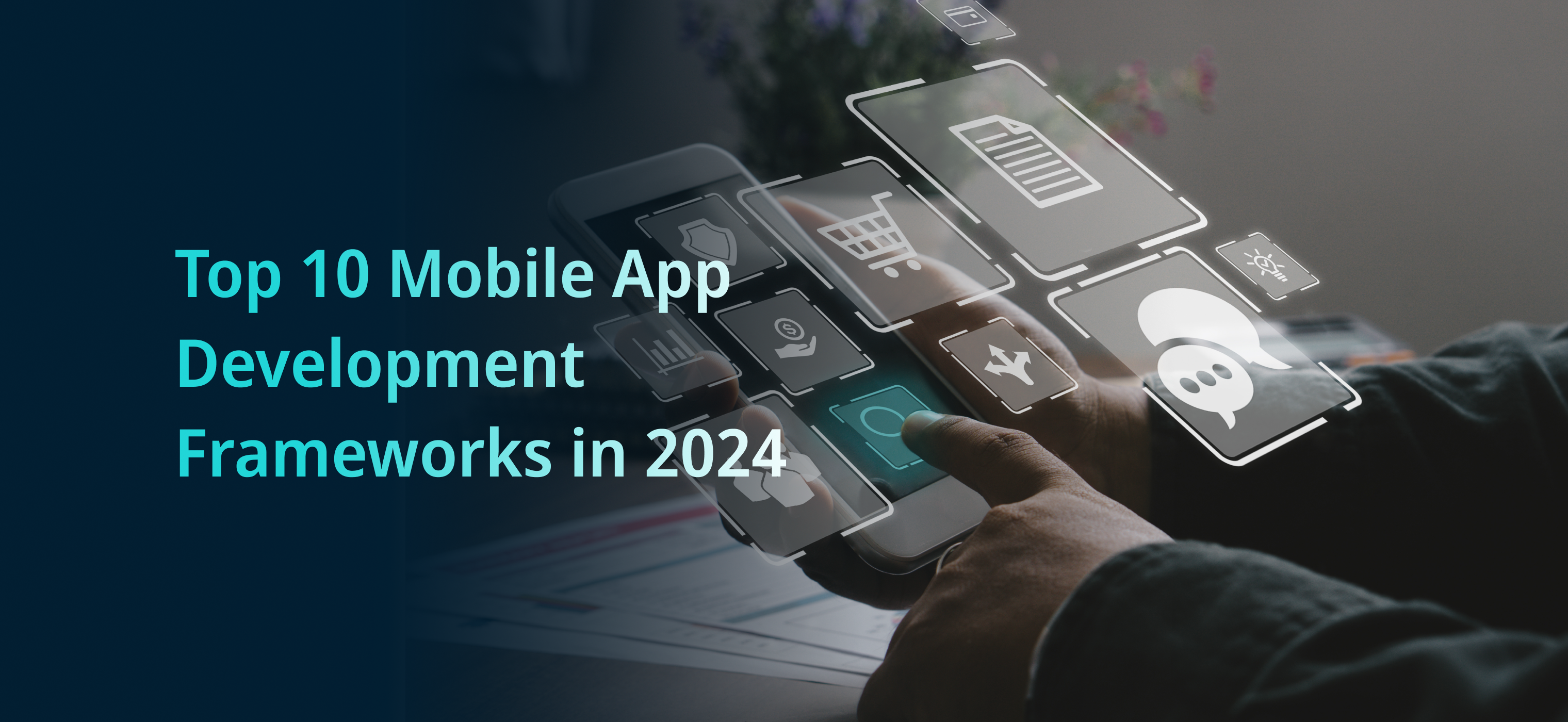With the increased development of blockchain-based applications, it’s time for developers to embrace the benefits of this technology. Blockchain has the potential to revolutionize the way we interact and do business with one another. It offers a secure, transparent, and decentralized way of exchanging value without the need for intermediaries. By incorporating blockchain into their app development, developers can provide users with a more secure and efficient experience, paving the way for a new era of decentralized apps. In this blog post, we’ll discuss why developers should embrace blockchain-based app development in 2023 and provide some tips on how to get started.
Understanding Blockchain Technology
Blockchain technology has been around for over a decade, but it’s still relatively new in the world of app development. Simply put, a blockchain is a distributed ledger that records transactions securely and transparently. In other words, it’s a digital ledger that can’t be tampered with.
One of the key benefits of blockchain technology is that it removes the need for intermediaries. Instead of relying on third-party institutions to validate and record transactions, blockchain technology enables direct transactions between parties. This has a number of implications for app development.
For one thing, it can lead to greater transparency and accountability in transactions. Because blockchain transactions are recorded on a distributed ledger that’s accessible to all participants, there’s no room for fraud or manipulation. This could be particularly valuable in industries like finance and healthcare, where security and privacy are of the utmost importance.
Another key benefit of blockchain technology is its potential to reduce costs. By removing intermediaries, blockchain technology can make transactions faster, cheaper, and more efficient. This could lead to new business models and opportunities for developers.
However, it’s important to note that blockchain technology isn’t a silver bullet. It’s still a nascent technology with its fair share of challenges and limitations. Understanding blockchain trends and staying up to date with developments in the space is critical for developers looking to incorporate blockchain into their apps.
Benefits of Blockchain-Based App Development
We’ll take a closer look at some of the advantages that have made blockchain-based app development so popular among developers and businesses alike.
- Since blockchains are decentralized networks, they provide enhanced security and privacy by providing tamper-proof, immutable, and unalterable data.
- Blockchain technology provides a shared, immutable ledger that anyone can access, in addition to its transparency. Accountability is enhanced by recording every transaction and tracing its source.
- Apps built on blockchain technology eliminate intermediaries, reducing costs and speeding up transactions. Traditional systems, however, are prone to errors due to manual data entry.
- Data storage, data management, and middlemen fees can be reduced with blockchain-based apps.
- As blockchain networks expand, more transactions can be processed concurrently due to their scalability.
A number of benefits can be derived from blockchain-based apps. Business owners can benefit from innovative and secure solutions offered by developers who have adopted this technology.
Types of Blockchain Networks
As Blockchain trends continue to dominate the tech industry, developers must be familiar with the different types of blockchain networks that are available. Understanding the different types of blockchain networks can help developers choose the right platform for their blockchain-based app development project.
Public blockchain networks are the most popular type of blockchain network. These networks are decentralized, which means that anyone can participate in the network without the need for a central authority. Bitcoin is an example of a public blockchain network that allows users to create and send transactions without the need for intermediaries.
Private blockchain networks, on the other hand, are only accessible to authorized users. These networks are often used by companies to create their own internal blockchain networks that are secure and confidential. Private blockchain networks are used by organizations such as banks, governments, and healthcare institutions to store sensitive data securely.
Another type of blockchain network is a consortium blockchain network. This type of blockchain network is used by groups of companies to collaborate and share information. Consortium blockchain networks are typically managed by a central entity and are more efficient than public blockchain networks.
Finally, hybrid blockchain networks combine the benefits of both public and private blockchain networks. These networks allow companies to store confidential data securely while still allowing for decentralized access to other parts of the network. Hybrid blockchain networks are becoming more popular as companies look for ways to leverage the benefits of blockchain technology without compromising security.
Tools and Frameworks for Blockchain-Based App Development
In the past few years, Blockchain trends have led to the emergence of several tools and frameworks for Blockchain-Based App Development. These tools have simplified the development process and reduced the time and effort required to create Blockchain-Based Apps. Here are some of the popular tools and frameworks used by developers in 2023.
- Ethereum: Ethereum is a popular open-source platform that allows developers to create decentralized applications. The platform has its own programming language called Solidity, which is used to create smart contracts.
- Hyperledger Fabric: Hyperledger Fabric is an enterprise-grade Blockchain platform that provides a modular architecture for building applications. The platform supports smart contracts and has a flexible consensus mechanism.
- Corda: Corda is an open-source Blockchain platform that is designed for business. The platform is built on a permissioned network and supports smart contracts. Corda also provides privacy and security features for businesses.
- Quorum: Quorum is an open-source Blockchain platform that is designed for financial services. The platform is built on a permissioned network and supports smart contracts. Quorum also provides privacy and security features for financial services.
- Truffle: Truffle is a development framework for Ethereum that provides tools for testing, deploying, and managing smart contracts. The framework also provides a suite of developer tools for building and testing Blockchain-Based Apps.
These tools and frameworks have simplified the development process for Blockchain-Based Apps and made it easier for developers to create decentralized applications. However, developers should still keep in mind the challenges and best practices for Blockchain-Based App Development to ensure their apps are secure and functional.
Common Challenges in Blockchain-Based App Development
While blockchain technology offers numerous advantages for app development, it also comes with its own set of challenges. Some of the common challenges faced by developers include:
- Complexity: Developing blockchain-based apps can be highly complex and challenging due to the decentralized nature of the technology. Developers need to have a deep understanding of blockchain protocols, cryptography, consensus algorithms, and other technical aspects.
- Scalability: Blockchain technology is still in its early stages, and many blockchain networks are not yet scalable enough to support large-scale applications. This can pose a challenge for developers looking to build apps that can handle high volumes of transactions.
- Security: Security is a critical concern for blockchain-based app development. Since blockchain technology relies on cryptography to secure transactions, any vulnerabilities in the code or the network can lead to security breaches. Developers need to be aware of potential security threats and implement robust security measures to protect their apps.
- Interoperability: Blockchain networks can be fragmented, and different networks may have different protocols and standards. This can make it difficult to build apps that can interact with different blockchain networks seamlessly.
- Regulatory compliance: Blockchain technology is still evolving, and many governments around the world are still figuring out how to regulate it. Developers need to be aware of the legal and regulatory frameworks in their jurisdictions to ensure that their apps are compliant with relevant laws.
- Adoption: While blockchain technology has immense potential, it is still a relatively new and unfamiliar concept for many people. Developers may face challenges in convincing users to adopt their blockchain-based apps, especially if they are not user-friendly or if users do not understand the technology.
Despite these challenges, blockchain-based app development is a rapidly growing field with immense potential. Developers who are willing to invest the time and resources to overcome these challenges can reap the benefits of this technology and build innovative, cutting-edge apps that can transform industries.
Best Practices for Blockchain-Based App Development
Developing blockchain-based apps can be a challenging task for developers due to the complexity of the technology and the inherent need for security and privacy. However, by following best practices, developers can overcome these challenges and create robust blockchain-based apps that provide significant value to their users. Here are some best practices that developers should consider when developing blockchain-based apps.
1. Understanding the Use Case:
Before developing any blockchain-based app, developers should carefully evaluate the use case. It’s important to understand the purpose of the app and what problems it’s trying to solve. This will help to identify the most suitable blockchain network, consensus mechanism, and data structure to be used.
2. Security and Privacy:
Security and privacy are critical aspects of any blockchain-based app. Developers should follow best practices to ensure that their apps are secure and private. This includes implementing end-to-end encryption, multi-factor authentication, and access control mechanisms.
3. Consensus Mechanism:
Consensus mechanisms are at the core of blockchain-based networks, and the choice of mechanism will have a significant impact on the performance of the app. Developers should evaluate different consensus mechanisms, such as Proof of Work, Proof of Stake, and Byzantine Fault Tolerance, to identify the most suitable one for their app.
4. Smart Contracts:
Smart contracts are self-executing contracts with the terms of the agreement between buyer and seller being directly written into lines of code. Developers should ensure that smart contracts are properly audited, tested, and deployed to avoid any issues or vulnerabilities.
Scalability is another critical aspect of blockchain-based app development. Developers should evaluate different approaches, such as sharding and sidechains, to ensure that their apps can scale efficiently as the user base grows.
Testing is essential to ensure that the app is functioning as intended and that there are no vulnerabilities or bugs. Developers should conduct comprehensive testing, including unit testing, integration testing, and end-to-end testing, to ensure the app’s robustness.
Future of Blockchain-Based App Development
The future of blockchain-based app development looks very promising. With the increasing popularity of blockchain technology, more and more companies are starting to recognize the benefits that it can bring to their businesses.
- As we move forward into 2023 and beyond, we can expect to see a continued growth in the number of blockchain-based apps being developed. This growth will be driven by the many benefits that blockchain technology offers, including increased security, transparency, and efficiency.
- One area where blockchain-based app development is likely to see significant growth is in the financial sector. Blockchain technology has the potential to transform the way we conduct financial transactions, making them faster, cheaper, and more secure.
- Another area where we can expect to see growth is in the supply chain industry. Blockchain technology can be used to create a more transparent and efficient supply chain, which can help to reduce waste, improve traceability, and ensure that products are sourced ethically.
- As more companies start to embrace blockchain-based app development, we can also expect to see an increase in the number of tools and frameworks that are available to developers. These tools will make it easier for developers to build blockchain-based apps, and will help to drive innovation in the industry.
However, there are still some challenges that need to be addressed before blockchain-based app development can truly reach its full potential. One of the biggest challenges is scalability, as blockchain networks can currently only handle a limited number of transactions per second.
Overall, the future of blockchain-based app development is looking bright. As more companies start to recognize the benefits that blockchain technology can bring to their businesses, we can expect to see continued growth in the industry, as well as continued innovation and development of new tools and frameworks.
Visit Internet Soft for the latest tech trends and insights around AI, ML, Blockchain, along with NeoBanking and timely updates from industry professionals!
Need assistance or have questions? Reach out us at Sales@internetsoft.com.






